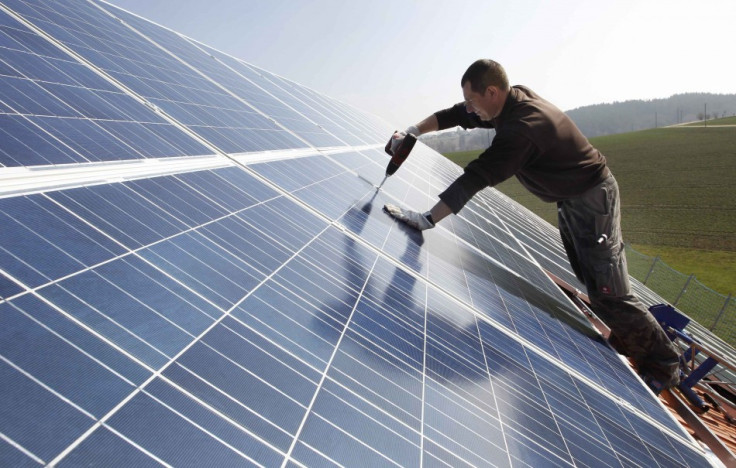EU Launches Anti-Dumping Probe into Chinese Solar Panels
The probe follows complaints that Chinese firms sell their products below the market rate

The European Union (EU) has launched an "anti-dumping" investigation into Chinese solar panels and related components being imported into the region.
In a statement, the EU said the probe was launched after the industry association, EU ProSun, complained that Chinese firms were selling products below the market value.
The investigation is expected to be completed in 15 months although Chinese manufacturers could face provisional anti-dumping duties within nine months if sufficient prima facie evidence is found.
"The complainant has brought sufficient elements showing (1) possible price dumping by the exporting producers on the EU market, (2) injury suffered by the Union industry, and (3) a possible causal link between the dumped imports and the injury suffered by the Union industry," EU said, adding that the evidence is sufficient to warrant the probe.
EU ProSun President Milan Nitzschke said in a statement that the EU has taken a major step in saving the region's green tech sector.
"Chinese companies are selling solar products in Europe far below their cost of production, with a dumping margin of 60% to 80%. This means that Chinese solar companies are making enormous losses, but are not bankrupt because they are bankrolled by the state," he said.
The Chinese ministry of commerce responded saying that the probe could prove to be damaging for both parties and the industry as a whole.
"Restricting China's solar panel products will not only hurt the interests of both Chinese and European industry, it will also wreck the healthy development of the global solar and clean energy sector," reported The Telegraph, quoting a ministry spokesperson.
The Guardian reports that China is the world's largest solar panel manufacturer while the EU is its biggest market and that the probe could potentially escalate into a political row between them.
Countries like Germany which are looking for better trade relations with China may not be interested in seeing developments that could lead to retaliatory measures from the Communist nation.
The Wall Street Journal reported that China had faced similar action in the US following findings that manufacturers benefited from large, illegal government subsidies, resulting in tariffs being imposed on the panels made in China.
© Copyright IBTimes 2025. All rights reserved.




















